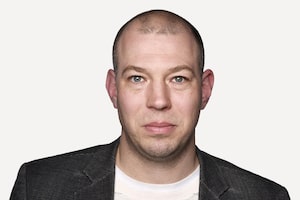Senior executives of a Swiss financial giant, recently fined hundreds of millions of dollars for helping thousands of wealthy Americans evade taxes, asked lawyers and financial experts in 2004 to share their methods for dealing with "Canadian clients who do not appear to declare income/capital gains," according to an e-mail released by the U.S. Department of Justice.
The e-mail shows that senior bankers at UBS AG arranged a meeting on Aug. 17, 2004, with four Swiss companies that specialize in creating financial structures that are sometimes used to conceal the identity of the beneficial owner, and have Canadian clients.
"We would like to conduct a review of the structures/vehicles that you offer to/have set up for our U.S. and Canadian clients. We invite you to make a short presentation on the structures/vehicles that you recommend to U.S. and Canadian clients who do not appear to declare income/capital gains to their respective tax authorities," states the e-mail, which was co-written by a number of UBS officials, including a senior banker named Michel Guignard.
The e-mail, which was released yesterday as part of a U.S. Senate subcommittee's ongoing investigation into UBS, is the latest piece of evidence to indicate that the Swiss financial giant - which was recently fined $780-million for sending a team of unlicensed bankers to the United States - ran a similar clandestine operation in Canada.
Just a few weeks ago, the bank acknowledged in a written agreement with the United States that it trained bankers in countersurveillance techniques and dispatched them to the United States, where they wooed well-to-do clients at art galleries and yacht races, and encouraged them to move their fortunes to Switzerland. None of the bankers were licensed to do business in the United States, and prosecutors say up to 52,000 U.S. clients could have hidden money in Zurich and Geneva without declaring the income to the Internal Revenue Service.
During their investigations, U.S. authorities also obtained internal bank documents that show the bank ran a similar operation in Canada, which was known internally at the bank's Swiss offices as "the Canada Desk."
UBS has a licensed subsidiary in Canada, which manages the portfolios of affluent clients at its Calgary, Montreal, Vancouver and Toronto offices, but sources say that the members of the Canada Desk never set foot in those offices during their trips across the Atlantic.
Despite being a much more discreet operation, the Canada Desk did significantly better business than its licensed counterpart; internal bank balance sheets obtained by U.S. investigators show that as of October, 2005, the Canada Desk managed $5.6-billion, and the licensed business held less than half that: $2.6 billion.
It's not known how many clients of the Canada Desk have reported their Switzerland-based holdings to the Canada Revenue Agency. Canadian residents are required by law to declare their worldwide income.
A UBS spokeswoman declined comment yesterday, saying that the bank would reserve its comments until it testifies today before the U.S. Senate Subcommittee on Investigations, which is chaired by Michigan Democrat Carl Levin and has been probing the bank for nearly a year.
Canada's Revenue Minister, Jean-Pierre Blackburn, has repeatedly declined to comment about how the Canada Revenue Agency is responding to the revelations from the investigations south of the border, except to say through a spokeswoman that the agency is committed to clamping down on offshore tax abuse.
 Greg McArthur
Greg McArthur